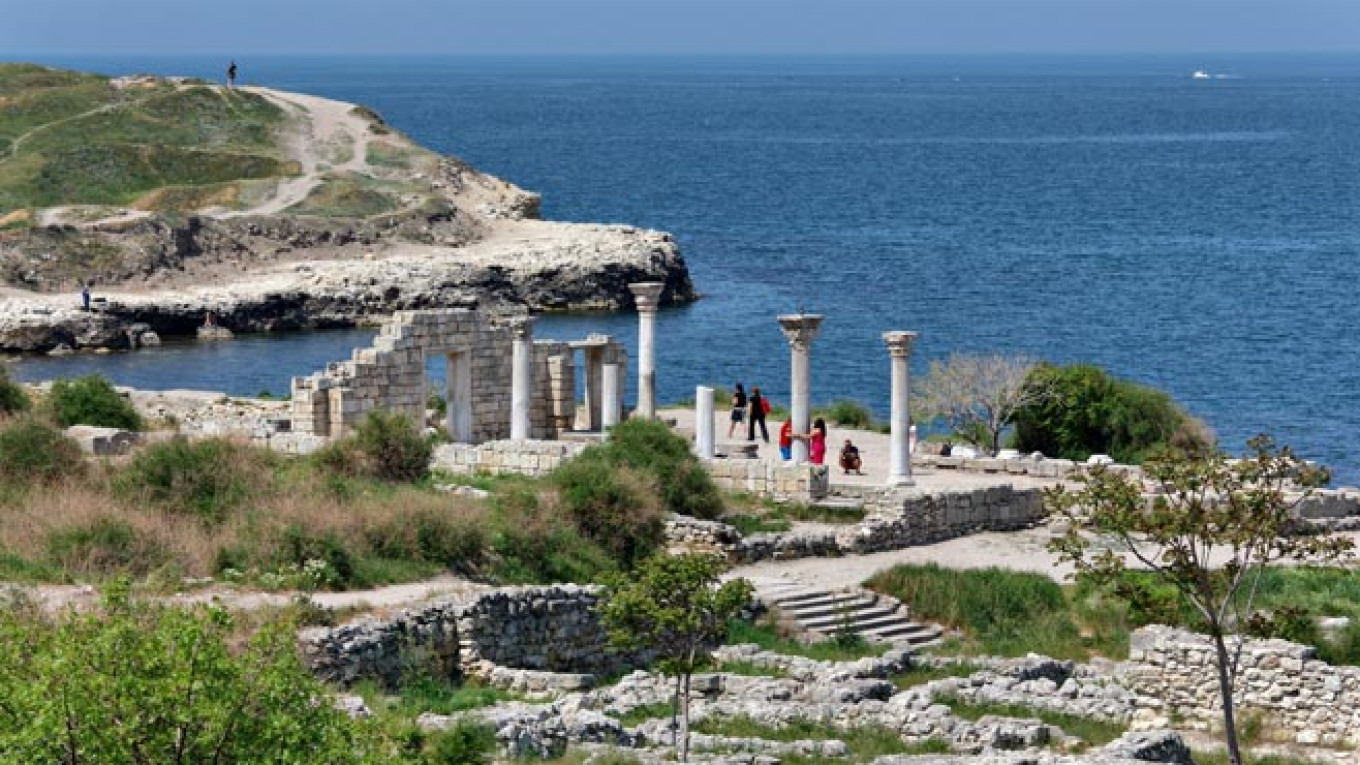The Culture Ministry will consult with the Foreign Ministry's branch of the UNESCO secretariat to discuss the best way to protect the UNESCO heritage sites in Crimea during the ongoing governmental transition, RIA Novosti reported.
The statement was in response to appeals made by the Ukrainian government to UNESCO that cultural sites in Crimea be protected during the ongoing turmoil and transition in government.
Vladimir Tsvetnov, director of the Culture Ministry's department of cultural preservation, said that "Crimea is a part of Russia, and all monuments will be preserved according to 73-FZ [the federal law regulating objects of cultural heritage]," However, Tsvetnov added that it would be premature to discuss UNESCO World Heritage sites in Crimea prior to the 38th session of the UNESCO World Heritage Committee, which will take place in Qatar in June.
Crimea, which has settlements dating back to the 7th century B.C., has a rich culture heritage and many well preserved historic structures and monuments. At present, only one Crimean site is included on the official UNESCO World Heritage List, the ruins of the Greek colony of Chernsonesus in the outskirts of Sevastopol.
However, Ukraine nominated a number of other Crimean sites to the list prior to Crimea's secession, including the Khan's Palace in Bakhchysarai, the Genoese fortress in Sudak and the Crimean cave towns of Mangup-Kale and Esti-Kermen.
On March 24, the Ukrainian Culture Ministry appealed to UNESCO to protect cultural heritage sites in Crimea, saying that Ukrainian researchers and preservationists had lost access to the sites. The turmoil in Ukraine surrounding the collapse of the government and ouster of President Viktor Yanukovych has already seen damage done to museums in Kiev, yet so far the transition in goverment in Crimea appears to have remained orderly, with no looting of cultural sites.
The question remains as to what will happen with Crimea's many important cultural sites under the new order. Crimea's most important site, the Chernsonesus ruins, was already considered to be under threat, with new vacation developments being constructed perilously close to archaeological digs and tourists allowed to roam the site with few restrictions.
While Russia has more resources to devote to cultural preservation and more experience working with UNESCO sites — Russia has 25 to Ukraine's 7 — Russia also lacks a perfect track record with cultural preservation — historic buildings in downtown Moscow are under significant threat from redevelopment, and even Russia's oldest UNESCO heritage site, the 5th-century citadel of Derbent in the republic of Dagestan, was robbed in 2013 and damaged by a flood in 2012.
While instability is rarely good for cultural heritage, the current change of government does raise the possibility of some improvement — if the Russian annexation does bring the anticipated flood of government subsidies from Moscow, the local government might have more resources available for cultural preservation. For now, at least the construction of tourist condos has temporarily halted in Chernsonesus.
Contact the author at [email protected]
A Message from The Moscow Times:
Dear readers,
We are facing unprecedented challenges. Russia's Prosecutor General's Office has designated The Moscow Times as an "undesirable" organization, criminalizing our work and putting our staff at risk of prosecution. This follows our earlier unjust labeling as a "foreign agent."
These actions are direct attempts to silence independent journalism in Russia. The authorities claim our work "discredits the decisions of the Russian leadership." We see things differently: we strive to provide accurate, unbiased reporting on Russia.
We, the journalists of The Moscow Times, refuse to be silenced. But to continue our work, we need your help.
Your support, no matter how small, makes a world of difference. If you can, please support us monthly starting from just $2. It's quick to set up, and every contribution makes a significant impact.
By supporting The Moscow Times, you're defending open, independent journalism in the face of repression. Thank you for standing with us.
Remind me later.






